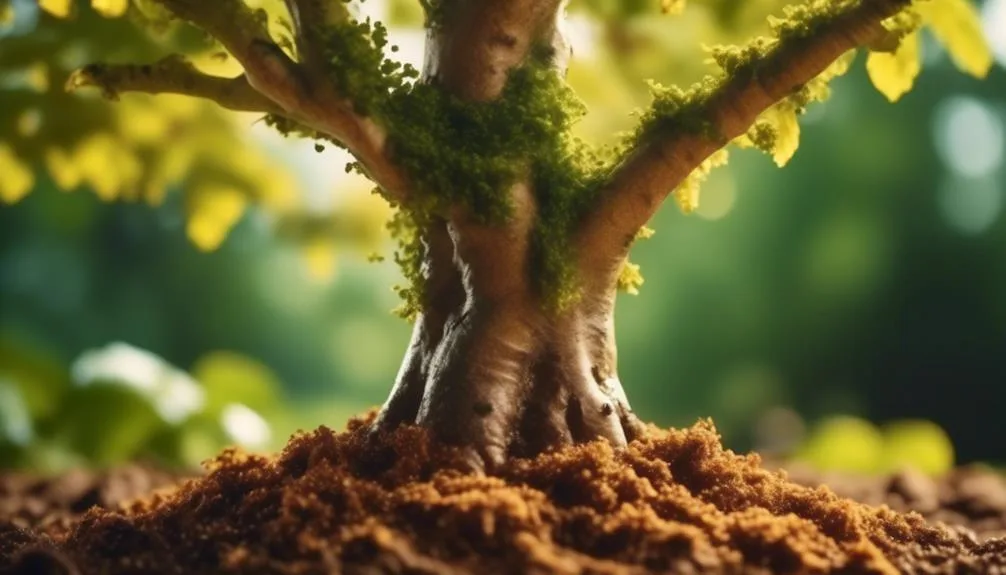Organic Fertilizers for Beech Trees
Choosing the right organic fertilizers for your beech trees is crucial for their health and growth. Understanding their specific needs is essential for optimal nourishment.
In this article, we'll explore the best organic fertilizers to help your beech trees thrive. Stay tuned for valuable insights into nurturing your beech trees and providing them with the nutrients they need.
Importance of Organic Fertilizers for Beech Trees
Using organic fertilizers for beech trees can significantly enhance their growth and overall health, providing essential nutrients in a natural and sustainable manner.
The benefits of organic fertilizers are numerous, not only for the trees themselves but also for the environment. Unlike synthetic fertilizers, organic options release nutrients slowly, promoting steady growth and reducing the risk of nutrient runoff. This, in turn, minimizes the environmental impact by preventing contamination of water sources.
Organic fertilizers also improve soil structure and foster beneficial microbial activity, creating a healthier ecosystem for the beech trees to thrive in.
Best Types of Organic Fertilizers for Beech Trees
When considering the best types of organic fertilizers for your beech trees, it's important to prioritize sustainability and environmental impact, building upon the benefits of organic fertilizers discussed earlier. The table below highlights some of the best organic fertilizers for beech trees, considering their nutrient absorption and environmental impact.
| Organic Fertilizer | Nutrient Absorption | Environmental Impact |
|---|---|---|
| Compost | Excellent | Low |
| Manure | Good | Medium |
| Fish Emulsion | Excellent | Low |
| Seaweed Fertilizer | Good | Low |
These options provide essential nutrients while minimizing environmental impact. Compost and fish emulsion, in particular, are excellent choices for promoting healthy beech tree growth while being environmentally conscious. By selecting organic fertilizers with high nutrient absorption and low environmental impact, you can ensure the well-being of your beech trees while preserving the environment.
Application and Timing of Organic Fertilizers
To ensure optimal growth and nutrient absorption, it's essential to carefully consider the application and timing of organic fertilizers for your beech trees.
Understanding the nutrient requirements and soil conditions of your specific beech tree is crucial.
When applying organic fertilizers, it's important to consider the tree's growth cycle. For young beech trees, apply the fertilizer in early spring before new growth begins. Mature trees benefit from fertilization in late fall when they're preparing for dormancy.
Additionally, it's important to spread the fertilizer evenly within the tree's drip line to ensure that the roots can access the nutrients effectively.
Tips for Using Organic Fertilizers on Beech Trees
Consider the specific nutrient requirements and growth cycle of your beech trees when incorporating organic fertilizers for optimal results. Organic fertilizers offer several benefits for beech trees, including improved soil structure, increased microbial activity, and enhanced nutrient absorption.
When using organic fertilizers, it's essential to apply them in the right amount and at the right time to ensure maximum effectiveness. Avoid over-fertilizing, as it can lead to nutrient imbalances and potential harm to the trees. Be mindful of the nutrient content of the organic fertilizer and match it to the specific needs of your beech trees. Additionally, always follow the recommended application rates provided by the fertilizer manufacturer.
Organic Fertilizer Dos and Don'ts for Beech Trees
To ensure the optimal health and growth of your beech trees, it's important to adhere to key dos and don'ts when using organic fertilizers. Organic fertilizers offer numerous benefits, including enhancing soil structure, promoting beneficial microbial activity, and providing a balanced range of nutrients that are essential for the overall health of beech trees. When applying organic fertilizers to your beech trees, it's crucial to follow the recommended dosage and application frequency to meet their specific nutrient requirements. Additionally, it's important to avoid over-fertilization, as excessive nutrients can lead to adverse effects on the trees' health. Remember to choose organic fertilizers that are suitable for beech trees and to always carefully read and follow the instructions provided by the manufacturer.
| Dos | Don'ts |
|---|---|
| Follow recommended dosage | Over-fertilize |
| Choose organic fertilizers | Use synthetic fertilizers |
| Read and follow manufacturer's instructions | Neglect nutrient requirements |
Conclusion
Incorporating organic fertilizers ensures the well-being of your beech trees and the sustainability of the soil. By selecting the right type and timing for application, along with following best practices, your beech trees will thrive.
Embracing organic fertilizers fosters a flourishing garden and a greener environment.

My interest in trees started when I first saw the giant sequoias in Yosemite.
I was a teenager then, and I remember thinking, “I need to learn more about this.”
That moment stuck with me.
A few years later, I went on to study forestry at Michigan Tech.
Since graduating, I’ve worked in a mix of hands-on tree care and community education.
I’ve spent over ten years helping people understand how to plant, maintain, and protect the trees in their neighborhoods.
I don’t see trees as just part of the landscape.
They are living things that make a real difference in our daily lives.
